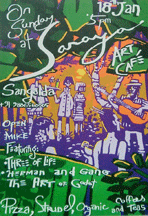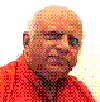Laetare alleluia. - rejoice alleluia
Quia quem meruisti portare - Because you were favored to carry Him
Alleluia, Alleluia. - Alleluia, alleluia
Resurrexit, sicut dixit - He rose, as he had foretold.
Alleluia, Alleluia. - alleluia, alleluia
Ora pro nobis Deum. - Pray for us to God
Alleluia, Alleluia - Alleluia Alleluia.
By Antonio Lotti
Born: January 5, 1667 - Venice, Italy
Died: January 5, 1740 - Venice, Italy
Antonio Lotti was an Italian Baroque composer. His father, Matteo, was the Kapellmeister in Hannover, Germany, where Lotti's brother and sister were born in 1672 and 1673. What is unsettled is when Matteo Lotti and his family arrived in Hanover, and exactly what year Antonio was born. Neither is known with certainty and, hence, his birthplace may have been either city. By 1682, when Antonio was a teenager, the family was back in Venice. He began studying with Lodovico Fuga and the important composer Giovanni Legrenzi, both of whom were employed at St Mark's Basilica, Venice's principal church.
One of his first recorded musical jobs was signing on an as extra singer when the newly formed fraternity of Santa Cecilia was established at St. Mark's basilica. On May 30, 1689, Antonio Lotti was hired as a regular alto singer. This does not imply a later birthday for Lotti, who was a countertenor (natural male alto). After that he worked his way up through the musical ranks at St Marks: assistant to the second organist (1690), second organist (1692), first organist (1704), temporary primo maestro di cappella (1733), and finally, permanent primo maestro di cappella (from 1736), a position he held until his death. His final position gave him a good salary and free lodging. Before then, he had supplemented his salaries by composing such items as a books of masses for St Mark's, motets, choral works, oratorios and operas. He also wrote music for, and taught at, the Ospedale degli Incurabili.
Antonio Lotti's operatic debut, Il trionfo dellinnocenza, was premiered in 1692. In a few years, he became one of the most popular of composers for the Venetian operatic stage. Between 1706 and 1717 he wrote and saw staged at least 16 operas, in addition to revising earlier works. In 1717 the procurators of the church granted him and his wife leave to go to Dresden and even take some of the musicians of the Basilica with him. There was a succession of gala events occurring there, for which Lotti provided new operas. First, he wrote Giove in Argo, which was produced in 1717 in the Redoutensaal. Then a lighthearted piece called Le quattro elementi was played in a palace garden in connection with the wedding of Friedrich August, Elector of Saxony, to Maria Gioseffa of Austria in 1719. He also wrote there the opera Teofane (all these works with librettos by Antonio Maria Luchini). Finally, a few weeks later, there was a revised version of Giove to open the new Hoftheater. After that, in 1719, he returned to Venice and his regular job, and remained there until his death in 1740. Although he received a handsome coach and horses in appreciation for his work there, he made no more trips.
Antonio Lotti wrote some of the most important music of his part of the Italian Baroque. He wrote in a variety of forms, producing masses, cantatas, madrigals, around thirty operas, and instrumental music. His music for the operatic stage was brilliant while highly dramatic and harmonically daring. In addition to his sacred music and operas, he wrote solo cantatas with strings, and some with continuo only. But he also wrote an unusual assortment of short pieces for two or more singers. His Miserere in D (1733) became a tradition at St Mark's, played every Maundy Thursday at St Mark's during the 18th century and even some in the 19th. In his church music, he was an arch-conservative (usually to the point of foregoing any instrumental accompaniment), writing very learned, by-the-book counterpoint, yet managing to keep the results brilliant. His secular music, however, tracked all the important developments in music during the Baroque era, even to the point of shifting toward the less contrapuntal music of the awakening Classical era in music. His work is considered a bridge between the established Baroque and emerging Classical styles. Lotti is thought to have influenced J.S. Bach, Georg Frideric Handel, and Jan Dismas Zelenka, all of whom had copies of Lotti's mass, Missa Sapientiae. Amongst his most famous of compositions is the Crucifixus in which he aimed to break the rules of conventional harmony (unprepared dissonances, tritones and the like) and to this end can be called the first 'atonal' piece of music.
Antonio Lotti was also a notable teacher, with Domenico Alberti, Benedetto Marcello, Baldassare Galuppi, Giuseppe Saratelli and Jan Dismas Zelenka among his pupils. He was married to the noted soprano Santa Stella.
| < Prev | Next > |
|---|
















